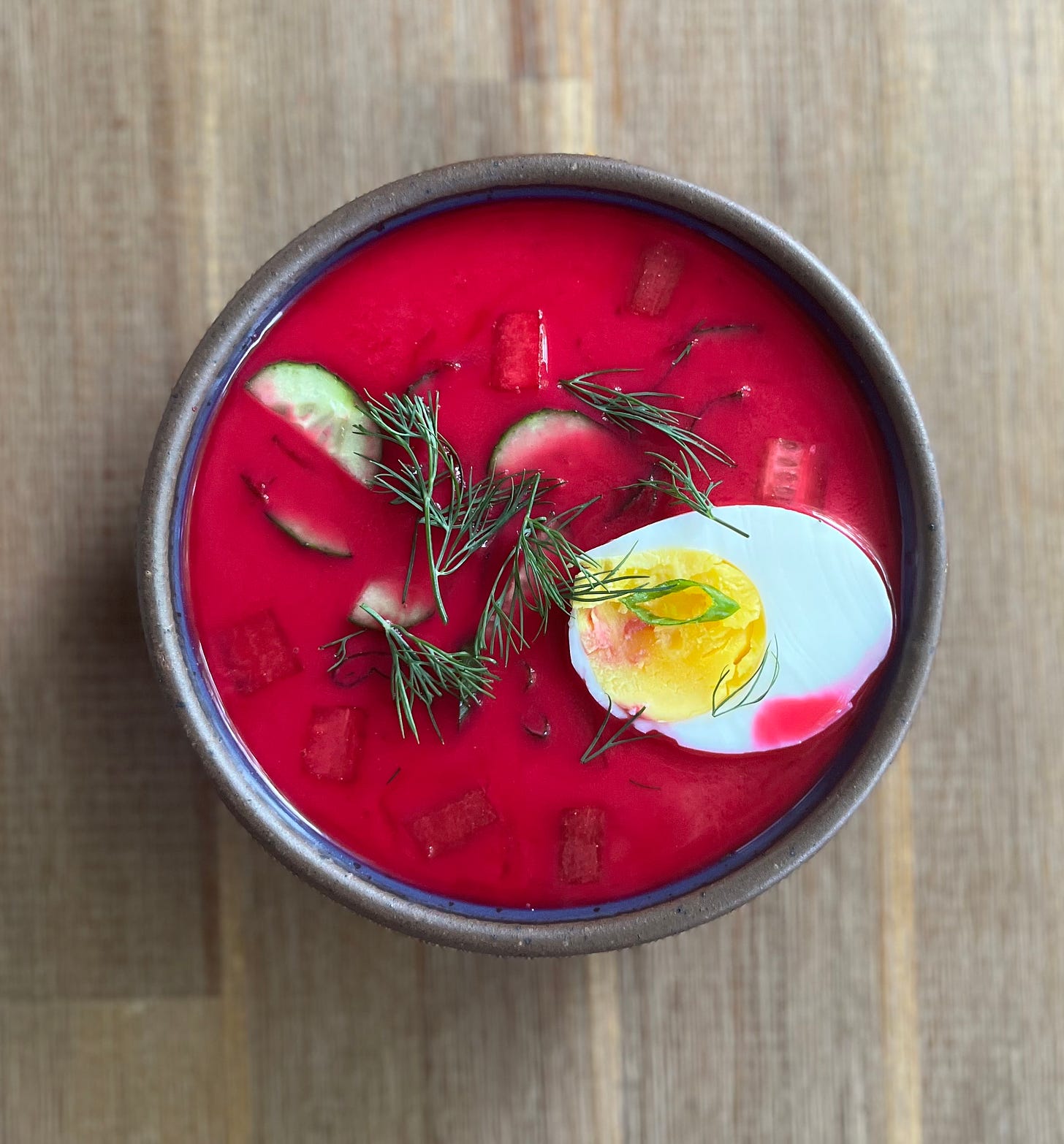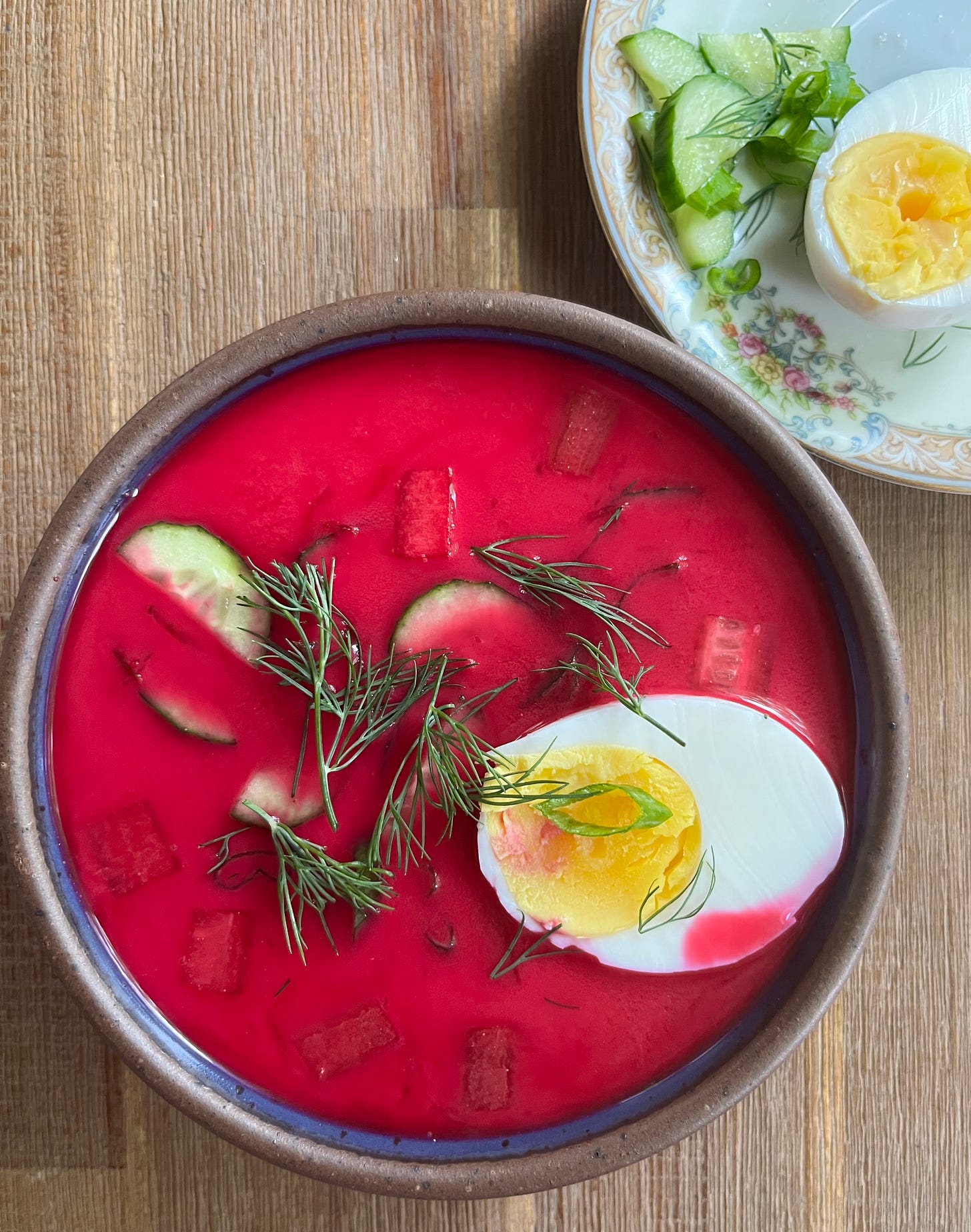Hey there, If you’ve found your way here but are not yet subscribed for the weekly newsletter, you can do that here. You will never miss a story or recipe (including the one shared below), and I’ll be eternally grateful for your support.
Are you a night owl or a morning person? Are you someone who thrives on staying up all night to watch the sunrise, or someone who prefers being gently woken up by the morning sun streaming through your window?
I have always been firmly on team daytime. I never enjoyed staying out late, even in my 20s. I pulled exactly one all-nighter in college and felt bonkers the next day. I identify with the Shakespearian idea that “sleep…knits up the ravelled sleeve of care.” (Don’t you just love that image of sleep as a kindly old knitter, gently and methodically mending up all of the day’s rips and snags?) So while I honor that some folks thrive during the night’s darkest stretch, I’d rather be snoozing. And aside from the blurry, sleepless months after having babies, and the fretful nights when anxiety steals my ability to sleep, I can only think of a handful of occasions where I stayed up all night on purpose.
Enter Shavuot, the Jewish calendar’s official “all-nighter” holiday. The holiday commemorates the moment the Torah was revealed to the Israelites on Mount Sinai. During the time of the Holy Temple in Jerusalem, Shavuot was also a pilgrimage festival that marked the beginning of the wheat harvest. As far as holiday awareness goes, it isn’t as widely known as Passover or Rosh Hashanah, but Shavuot is definitely a big deal.
Some folks honor the holiday with a Tikkun Leil Shavuot—quite literally an all-night study session of Jewish texts. According to the Midrash, on the morning they received the Torah, the Israelites overslept. So the 16th century mystics of Tsfat decided to correct for the Israelite’s embarrassing sleepiness by staying awake all night on Shavuot learning. (The word tikkun roughly translates to "correct” or “repair” for a mistake.) That way, instead of accidentally sleeping in, they were certain to be awake for any important revelations.
The mystics also believed that the heavens briefly open up on Shavuot night, offering unparalleled access and connection to divine Jewish wisdom. It is a lovely notion for the night owls among us. But for decidedly diurnal folks like me, it is a losing game. I’ve attended a couple of Shavuot tikkuns before, including the lovely Shavuot Across Brooklyn event that happens near me every year. But instead of getting closer to anything divine, I found myself loopy and cranky and ready to head home by 2am.
This year, I plan to honor Shavuot by reading a few chapters (or pages, more realistically) of Rabbi Sharon Brous’ The Amen Effect, and going to bed at a reasonable hour. Because studying all night is lovely for some—but for me, getting a good night of sleep always feels revelatory.
Pink Soup
I may not be a study-all-night kind of person, but one Shavuot tradition I can get behind is the holiday’s celebration of all things dairy. This year, I am feeling particularly fond of this amazing Pink Soup, which is my riff on the Polish dish chłodnik.
Like beet borscht, chłodnik is made from a base of red beets that lend their bright color and sweet flavor to the broth. And like many summery borscht recipes, chłodnik, is traditionally served chilled. But the soup, which was a warm weather staple for Polish Jews and non-Jews alike, is also enriched with dairy—typically kefir, yogurt, sour cream, and/or buttermilk. Instead of simply being dolloped on top of the soup bowl at the table, the dairy is stirred directly into the soup, transforming the red broth into an almost unbelievable shade of hot pink.
My recipe breaks with tradition by adding a grated full sour pickle and pickle juice into the broth. I love the extra nutrients and probiotics the lacto-fermented pickle brings to the dish, and also adore how it boosts the soup’s mouth-puckering brightness. I like to serve it maximally topped with halved hard boiled egg, sliced cucumbers, crunchy radishes, and a generous sprinkle of fresh dill. It’s pure, full-flavored refreshment whether you serve it for Shavuot or any summery dinner outside.
This Shavuot, why not make a pot of this gorgeous Pink Soup and let it chill in the fridge while you study—or sleep!—all night.
Pink Soup
Serves 6
Keep reading with a 7-day free trial
Subscribe to The Jewish Table to keep reading this post and get 7 days of free access to the full post archives.





